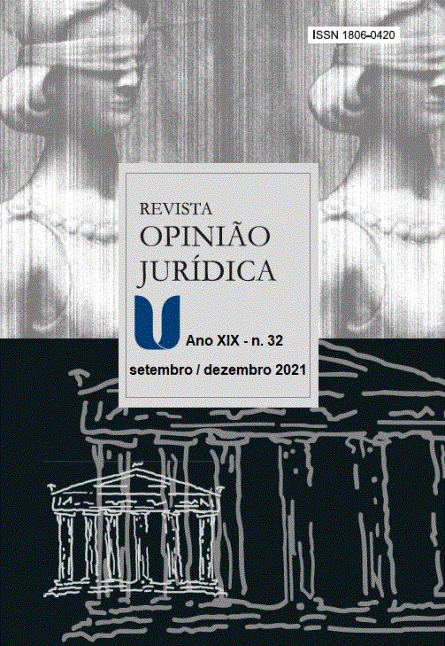RISKS OF THE HERBICIDE GLYPHOSATE: SCIENTIFIC CONTROVERSY OR DENIAL OF HUMAN HEALTH DAMAGES?
DOI:
https://doi.org/10.12662/2447-6641oj.v19i32.p267-295.2021Keywords:
Pesticides, Future Damages, Glyphosate, Reflective Modernization, Health RisksAbstract
Objective: This article aims to examine the scientific controversy regarding the pesticide glyphosate, which for many years was considered safe for human health and environmentally sustainable, but which is currently being questioned by science and by the law systems in relation to risks and future damage.
Methodology: The methodology used is systemic-constructivist, based on the contributions of Niklas Luhmann, which allows to examine how each system perceives the pesticide glyphosate. Regarding procedural techniques, systematic literature review, bibliographic, documentary and jurisprudential research were performed.
Results: The science system, by proving a correlation between glyphosate and human health damages, led society to movements ranging from the ban on pesticides in some countries to to billionaire compensation to victims brought by the legal system. However, there is a long way for the effective banishment of the most consumed pesticide in the world.
Contributions: This study examined data from the science system (scientific research), the political system (national and international regulatory agencies) and the legal system (actions and decisions in the judicial sphere). In doing so, it offers a reflection on the process of self-confrontation of the society with the risks it created when launching products, such as glyphosate, without sufficient research to indicate its safe use.
Published
How to Cite
Issue
Section
License
CESSION OF COPYRIGHTS
The submission of articles to analysis for publication on Opinião Jurídica implies the author(s) transfers copyrights to Centro Universitário Christus – UNICHRISTUS for reproduction, publicizing, distribution, printing and publication, according to the Publication Norm 414R, Opin. Jur., Fortaleza, year 12, n. 16, p.1-414, Jan./Dec. 2014, costs to be bore by UNICHRISTUS, in whatever format or means that may or shall exist, in accordance to articles 49 and following of Federal Law 9.610/98.
1. In ceding copyrights, the author(s) agrees to do so in exclusivity, free of charge and for the totality of the work.
2. UNICHRISTUS may make the work, in its entirety or in parts, available for scholarly purposes, without altering its contents, except for small corrections that are deemed necessary.
3. The cession of copyrights is valid in all countries and for versions of the material in its original language or translated into a foreign language.
RESPONSIBILITY FOR THE CONTENT
By submitting an article, the author(s) declare to have sole responsibility for the content of the piece and is(are), therefore, responsible for any judicial or extrajudicial measures referring to it.
1. In case of joint authorship, all authors are considered collectively responsible, except when proved otherwise.


















